Dear Secretary Price:
We, the National Medical Association, National Hispanic Medical Association, National Council of Asian Pacific Islander Physicians, Association of American Indian Physicians, and Association of Black Cardiologists thank you for your response dated April 11, 2017 on the vital role the Department of Health and Human Services (HHS) has in helping to achieve health equity and better health outcomes for all Americans. In the conclusion of your letter, you stated your expectation that HHS will focus on improving the lives of every American, regardless of circumstance, and that you looked forward to our continued dialogue and working together to achieve this goal. We are writing to formally request a meeting with you in the next sixty days to discuss ways we can help advance the work of HHS under your leadership. As national organizations representing thousands of physicians serving millions of Americans throughout the U.S., we are attuned to the health care challenges America faces, particularly in assuring care to minority groups and strengthening our public health system.
Secretary Price, as a member of Congress, you consistently upheld key components of a robust healthcare system; namely, affordability, accessibility, and quality. We understand that as a fellow physician, you believe in the centrality of the doctor-patient relationship – the critical component of a just healthcare system. Meaningful and productive change in our healthcare system will only happen as we marry policy with safeguards to preserve the importance of patient-physician relationships. To this end, we will enthusiastically partner with you in advancing these common principles and values.
Specifically, we would like to speak with you about future projects that will benefit minority health outcomes and those of all Americans, including increasing minority participation in clinical trials and continued implementation of the National Standards for Culturally and Linguistically Appropriate Services (CLAS) in Health and Health Care. As physicians, we know firsthand the importance of solid research on the most effective preventive measures and treatments for our diverse patients. Supporting the participation of diverse Americans in clinical trials will provide the needed evidence base for the most effective and efficient health care. For the improvement of healthcare quality and equity, the CLAS Standards are a lynchpin that has been endorsed by both Republican and Democratic administrations. The continued implementation of the CLAS Standards will improve the entire healthcare delivery system.
In your April letter to us, we were heartened to read your support of HHS’ Office of Minority Health (OMH) and its counterparts throughout other operating divisions of HHS. As discussions about the federal budget continue, we ask you to ensure a strong budget for HHS’ OMH and its counterparts throughout your department. For example, OMH has:
- Started the State Partnership Initiative to Address Health Disparities, providing funding to 21 state departments of public health and tribal councils, which have supported interventions on obesity and diabetes in Georgia, hepatitis B among Vietnamese Americans in Mississippi, health education in Virginia, improving healthy behaviors in African American and Hispanic patients in Indiana, and increasing adoption and adherence to the CLAS Standards in New York.
- The National Workforce Diversity Pipeline Program which identified high school students from diverse ethnic backgrounds and helped prepare them for careers in health care. That investment has already led to dozens of underrepresented and disadvantaged students (9th and 10th graders from Hispanic, Native American, African American, and Native Hawaiian backgrounds) taking part in education and training programs in Ohio, South Dakota, Hawaii, and other states and regions.
These programs and initiatives represent only some of the great work that OMH has facilitated and made possible. We strongly advocate for maintaining or increasing the OMH’s budget of $57 million. Relative to other HHS offices, OMH’s budget is small, but significant in making an impact on health disparities and coordinating minority health efforts throughout HHS. We also ask that your office support maintaining or increasing budgets of the individual Offices of Minority Health throughout your department; as you stated, they have demonstrated their value within their respective agencies.
Of vital importance, too, are the Centers for Disease Control and Prevention, the Food and Drug Administration, and the National Institutes of Health. We ask you to do all you can to ensure their budgets are maintained and even strengthened as they provide vital research, prevention services, and programs that advance the public health, including for minorities and vulnerable populations experiencing health disparities. This is especially important in assuring that the needs of minority populations are protected in any efforts to reduce regulations and expedite the drug approval process.
We appreciate your continued commitment to recognizing minority health as an integral part of the public health, and commend your efforts to reduce and eliminate health disparities. We support all efforts of the department in addressing the social determinants of health and believe that success will be contingent on meaningful partnerships. It is in this spirit that we look forward to the opportunity to continue this dialogue with you in person in order to move towards our shared vision of a better health care system for all Americans.



